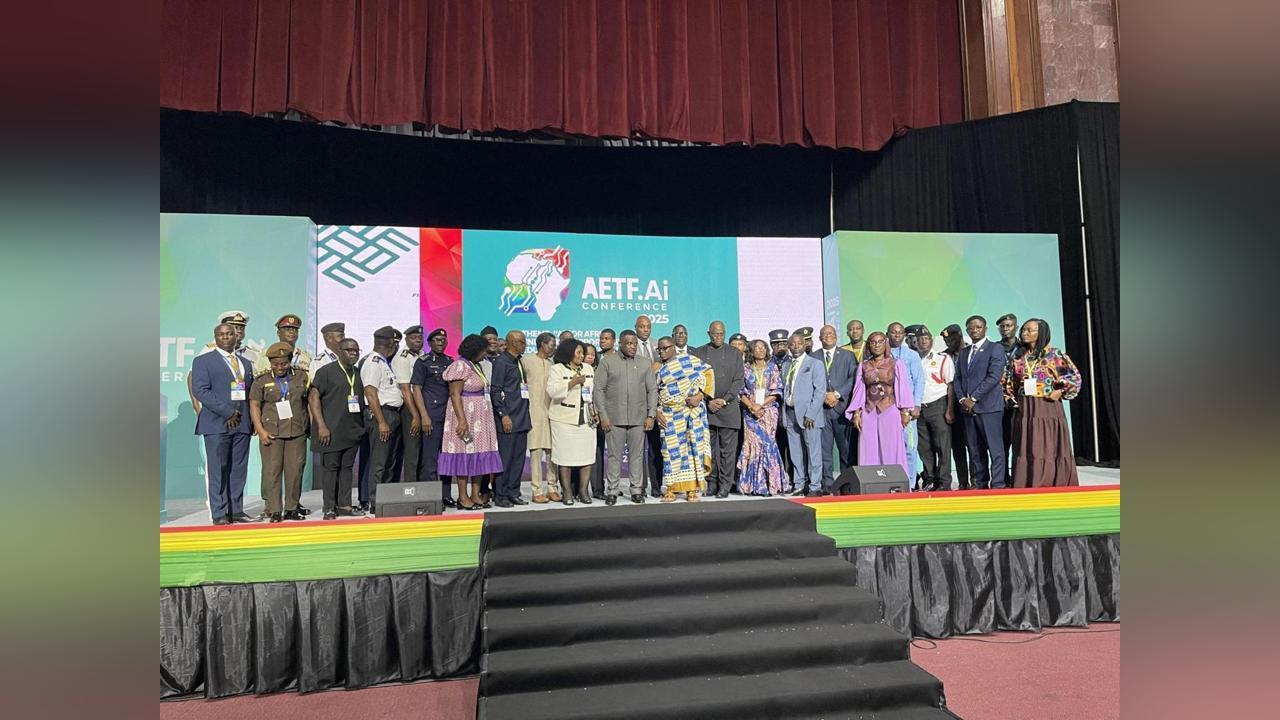Africa-Press – Ghana. Mr. Julius Debrah, Chief of Staff, the Chief of Staff, has underscored the urgent need for African nations to develop inclusive national Artificial Intelligence (AI) strategies that are grounded in ethics, equity, and local relevance.
He said this was to ensure that Africa fully harnessed the transformative power of AI for sustainable growth.
The Chief of Staff was speaking at the Africa Education Trust Fund – Artificial Intelligence (AETF-AI) Conference 2025, which was organised by AETF.
The Conference was under the theme, “AI for Africa: Unlocking Opportunities for Education, Innovation and Sustainable Development.”
Mr. Debrah emphasized that countries that had embraced AI were already witnessing measurable progress in education, healthcare, agriculture, and climate resilience.
He said the African Union’s Continental AI Strategy, endorsed in Accra in 2024 captured this moment of opportunity, framing AI as a strategic asset for advancing Agenda 2063 and the United Nations Sustainable Development Goals (SDGs) in a manner that was ethical, inclusive, and scalable.
Mr. Debrah said AI had rapidly evolved into a defining force of modern society, influencing classrooms, farms, hospitals, and economies across Africa.
“In Mali, AI tools are translating books into local languages, making learning more inclusive. In Kenya, AI is bridging the gap for deaf students through sign language, translation technologies”
“These are not just innovative solutions, but essential lifelines for providing equitable access to knowledge,” he added.
However, Mr. Debrah cautioned that the continent could not achieve its full AI potential through passive effort, stating that it required deliberate and strategic action.
Mr. Debrah said Ghana has already developed a National AI Strategy aimed at positioning the country as Africa’s AI hub, supported by initiatives like the One Million Coders Programme to equip young Ghanaians with practical digital skills.
He further acknowledged persistent challenges such as infrastructure deficits, unreliable internet access, a widening skills gap, and the lack of localized data sets and language support that limit the scalability and contextual effectiveness of AI solutions.
The Chief of Staff called for collective continental action, beginning with inclusive national AI frameworks rooted in African realities.
He urged African leaders to ensure that Africa’s data ecosystems were robust, secured, and reflective of the continent’s diversity, emphasizing that the future of AI in Africa depended not on possibility but on purpose.
Dr. Ekow Spio-Garbrah, the Chairman of AETF, said Ghana was deeply honored to host the conference, and that the AETF was deliberately established as a private sector–led organization to enable the business community to play a more active and strategic role in advancing the continent’s educational agenda.
He said historically, since the colonial era, education across much of Africa had been primarily driven by the public sector.
The Chairman said AI presented a unique opportunity for Africa to overcome one of its most persistent barriers to unity, language diversity.
“For over seven decades, Africa has sought continental integration, yet linguistic fragmentation, rooted in colonial history, continues to impede cross-border communication and commerce”
“Today, people traveling or doing business across African nations often face linguistic challenges that limit trade and collaboration,” he added.
He said among the many transformative possibilities AI offered, one of the most visionary is its potential to help develop a Pan-African language, an inclusive linguistic bridge that could enhance communication, foster integration, and strengthen the continent’s collective identity.
For More News And Analysis About Ghana Follow Africa-Press







